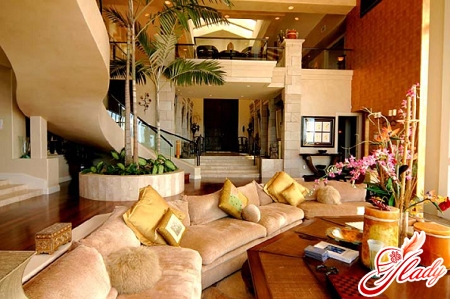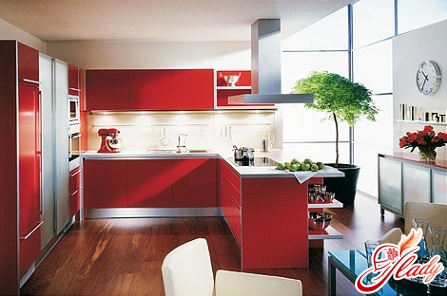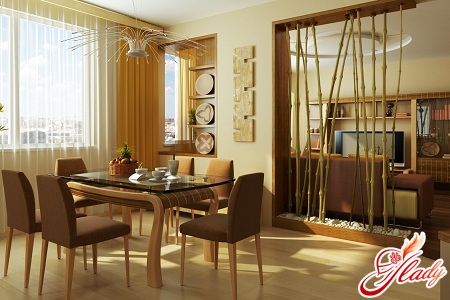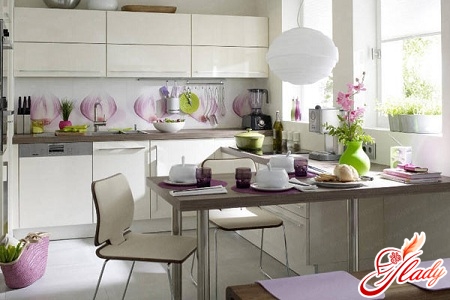 What does it cost us to build a house?Nothing, except for money and time. Of course, it is advisable to add desire and patience to this, as well as a reserve of nerves. Have you forgotten anything? Forgotten. And we have forgotten about the basics of the Feng Shui teaching, which guarantees us happiness and prosperity if we maintain a balance of water and wind energy in our living space. Do not be surprised. It is the harmony of water and wind that ensures that the entire space around us is filled with vital energy qi. And, on the contrary, with an obvious imbalance of the energy of these elements, the positive energy qi leaks out, devastating our lives and causing failures and misfortunes. In any case, this is what the Feng Shui teaching says. Whether or not to believe this statement is your business, but it is worth listening to the advice of Feng Shui masters, which they give to everyone who wants to build or buy a house. We offer you several postulates of the Feng Shui teaching concerning the “correct” house: where it should be located, how it should be planned and how it should look from the outside and inside.
What does it cost us to build a house?Nothing, except for money and time. Of course, it is advisable to add desire and patience to this, as well as a reserve of nerves. Have you forgotten anything? Forgotten. And we have forgotten about the basics of the Feng Shui teaching, which guarantees us happiness and prosperity if we maintain a balance of water and wind energy in our living space. Do not be surprised. It is the harmony of water and wind that ensures that the entire space around us is filled with vital energy qi. And, on the contrary, with an obvious imbalance of the energy of these elements, the positive energy qi leaks out, devastating our lives and causing failures and misfortunes. In any case, this is what the Feng Shui teaching says. Whether or not to believe this statement is your business, but it is worth listening to the advice of Feng Shui masters, which they give to everyone who wants to build or buy a house. We offer you several postulates of the Feng Shui teaching concerning the “correct” house: where it should be located, how it should be planned and how it should look from the outside and inside.
Surrounding area
If you believe the Chinese, then the dwelling of a person withThe four sides are surrounded by the spirits of four animals: on the left by the spirit of the Green Dragon, on the right by the spirit of the White Tiger, in front of the house lives the spirit of the Red Phoenix, and behind the house lives the spirit of the Black Turtle. According to this belief, the relief surrounding the house should look like this:
According to the teachings of Feng Shui, a house should not be located inalone. But it is desirable that the house behind yours be a little bigger, and the house in front (if there is one) should not exceed yours in height and size, and especially the one next to your home. Trees will not disturb the free flow of chi energy if they do not block the entrance to your house and take up space in front of it. But behind the house, to the left and to the right of it, the presence of trees is very desirable. If trees grow along the road that runs to the right of the house, then this is generally ideal. However, proximity to large busy highways, and especially to a railway line, is undesirable. Factories, bridges, dead ends and power lines are also considered unacceptable neighborhoods in Feng Shui. Therefore, the most favorable relief for the location of a house is considered to be hilly terrain, with a plot for a house surrounded by a hill from the north, a plain from the south, a river from the east, and a road from the west. What you cannot do is:
- build a house on top of a hill (hill);
- house at the crossroads;
- to put the house at the end of the impasse.
In all these cases, the residents of the house will beaccompany all sorts of ailments, luck will turn away from them. Such a location will also not have the best effect on the house itself: it will begin to quickly deteriorate and will require constant repair and renovation.
House planning
Having chosen a site for construction or having assessedlocation of the finished house, it is necessary to be puzzled by its layout (or evaluate the finished layout). The ideal layout is considered to be one in which the longitudinal depth of the house is greater than its width. The number of rooms in the house is also important in the teaching of Feng Shui, taking into account absolutely all the rooms, including the kitchen and bathrooms:
- one large room (studio room) - well,
- two rooms - neutral,
- three and four rooms - very bad,
- from five to seven rooms - excellent,
- eight rooms - bad,
- nine is very good.
The size of living rooms is considered unfavorable,if it is less than eight square meters, a layout in which a small room or non-residential premises are located in the center of the house is also considered bad. A layout in which a large living room or master bedroom is located in the center of the house is good from a Feng Shui point of view. The following layout of rooms and entrances cannot be planned:
- absence of a black entrance;
- a bedroom next to the kitchen;
- kitchen in the south-west;
- bathroom in the south-west or north-east;
- toilet in the center of the house;
- stairs in the center of the house;
- living room above the arch.
It's good when:
- The house is spacious;
- bedroom and main entrance on one straight line;
- kitchen in the east or north-east;
- main and black entrance on one straight line;
- The doors to the rooms are opposite each other.
- The floor level in the house is above the ground level beyond the threshold.
- Non-residential premises are located in adverse areas (along the Bagua grid).
- the garage is separated from the house and has a spacious access road.
House shape
In addition to the interior layout, it is also importantThe shape of the house and its color also have significance in the teachings of Feng Shui. What does this Eastern teaching say about the forms that are familiar to us? The most favorable shapes of the house are a rectangle, a square, a circle, and an octagon. The most unfavorable shapes are a horseshoe and the letter "G". However, even an unfavorable shape can be harmonized according to the rules of Feng Shui.
- L-shaped house
It needs to be completed to form a rectangle.You can make an extension, plant a large tree in the missing corner, put a sculpture or a lantern. If such options are difficult to implement, then opposite the entrance door in the hallway you need to hang a mirror. If this shape of the house is due to an attached garage, then it is necessary to balance the opposite side of the house by making a playground in this place or laying out a path.
- House-horseshoe
Very fashionable, but not a good shape for the home,which leads (as Feng Shui claims) to quarrels in the family and health problems. It is especially bad if the kitchen or bedroom is located in the side wings of the house. However, the situation can be corrected if you symbolically close the horseshoe by planting bushes between the ends of the wings of the house or by making a large flower bed there. Mirrors hung opposite the front door will also correct the space. In fact, any open shape of the house is considered unfavorable in Feng Shui. And the situation can only be corrected by filling the emptiness and visually giving the building the shape of a square, rectangle or circle.
Facade of the house
The face of the house is its façade with the front entrance andfront garden. By the way, having a front garden at the front of the house brings good luck and happiness to it. The path to the house also plays an important role, which also “makes” its face. In the teachings of Feng Shui, it is believed that if the path to the house is straight as an arrow, then this is very bad. And vice versa, a winding path favors the free passage of qi energy. It is important that the paving material of the path matches the decoration of the house, in any case, they should belong to the same element. So, for example, a path laid out with wooden slabs or log cuts should lead to a wooden house, and a rocky path is appropriate near a brick house. As for modern synthetic finishing materials for the facade, the ancient teachings of Feng Shui say nothing about this (there were no synthetics then). However, assuming that these materials belong to the element of fire (plastic is born in fire!), you can pave the path with artificial stone or red brick. The color of the house is also an important component of a properly planned home. Feng Shui masters recommend avoiding dark colors, especially black and blue. The fact is that these are the colors of water - the element that can carry away good chi energy. So choose any colors for home decoration, but only those that correspond to the element of the head of the family or the owner of the house. Do not forget that there should (simply must!) be a garden next to the house, and if the size of the plot does not allow, then at least a front garden or a flower bed. In general, the Eastern teaching of Feng Shui does not contradict either common sense or our usual idea of our own home. If you look at old Russian estates, it turns out that they meet all the rules of home planning according to Feng Shui in the best possible way. Perhaps our ancestors intuitively understood how to attract positive energy to the house, make the house comfortable, and life in it happy. And, mind you, it is unlikely that they read special books and certainly did not look for advice on the Internet. Take their experience and the ancient teachings of Feng Shui into account, and your home will definitely be happy! We recommend reading:









